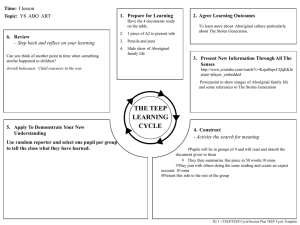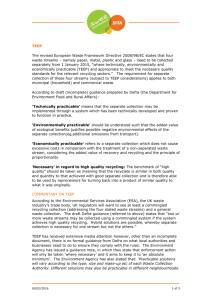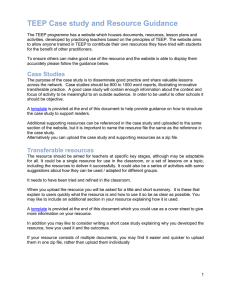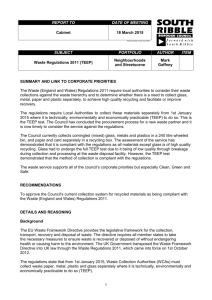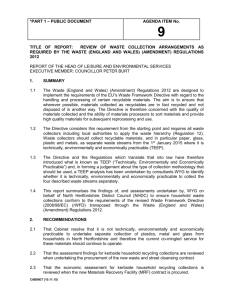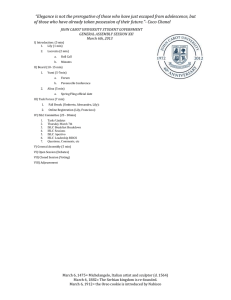Test of English for Educational Purposes (TEEPTM)
advertisement
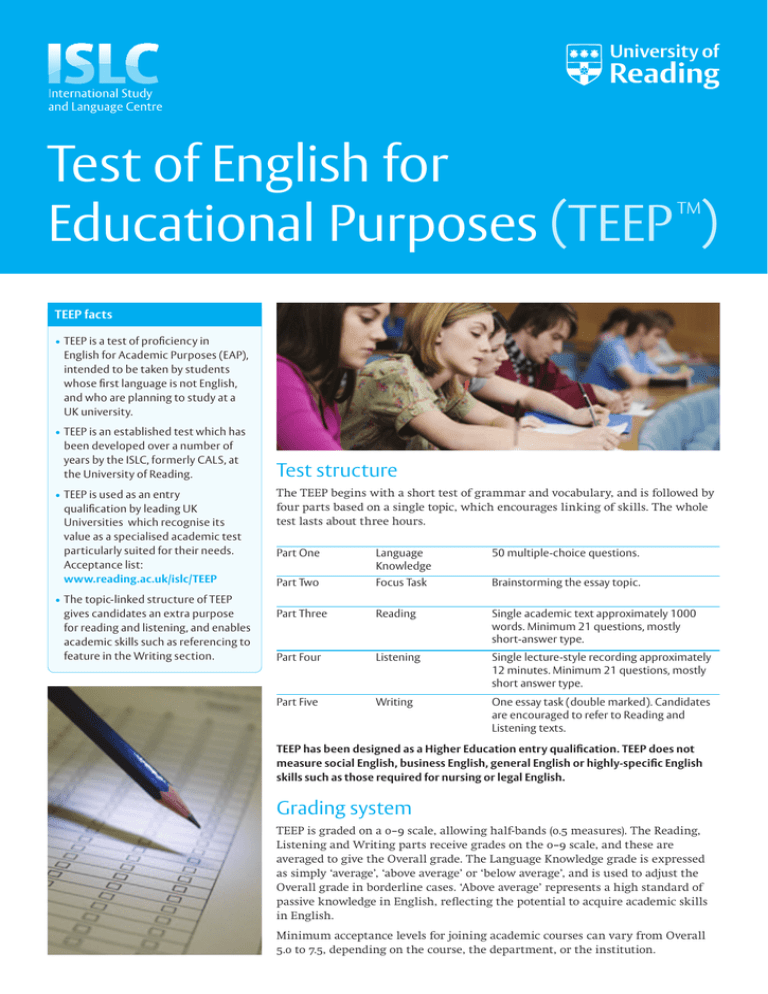
Test of English for Educational Purposes (TEEP ) TM TEEP facts •TEEP is a test of proficiency in English for Academic Purposes (EAP), intended to be taken by students whose first language is not English, and who are planning to study at a UK university. •TEEP is an established test which has been developed over a number of years by the ISLC, formerly CALS, at the University of Reading. •TEEP is used as an entry qualification by leading UK Universities which recognise its value as a specialised academic test particularly suited for their needs. Acceptance list: www.reading.ac.uk/islc/TEEP •The topic-linked structure of TEEP gives candidates an extra purpose for reading and listening, and enables academic skills such as referencing to feature in the Writing section. Test structure The TEEP begins with a short test of grammar and vocabulary, and is followed by four parts based on a single topic, which encourages linking of skills. The whole test lasts about three hours. Part One Language Knowledge 50 multiple-choice questions. Part Two Focus Task Brainstorming the essay topic. Part Three Reading Single academic text approximately 1000 words. Minimum 21 questions, mostly short-answer type. Part Four Listening Single lecture-style recording approximately 12 minutes. Minimum 21 questions, mostly short answer type. Part Five Writing One essay task (double marked). Candidates are encouraged to refer to Reading and Listening texts. TEEP has been designed as a Higher Education entry qualification. TEEP does not measure social English, business English, general English or highly-specific English skills such as those required for nursing or legal English. Grading system TEEP is graded on a 0–9 scale, allowing half-bands (0.5 measures). The Reading, Listening and Writing parts receive grades on the 0–9 scale, and these are averaged to give the Overall grade. The Language Knowledge grade is expressed as simply ‘average’, ‘above average’ or ‘below average’, and is used to adjust the Overall grade in borderline cases. ‘Above average’ represents a high standard of passive knowledge in English, reflecting the potential to acquire academic skills in English. Minimum acceptance levels for joining academic courses can vary from Overall 5.0 to 7.5, depending on the course, the department, or the institution. Grades have the following meaning Overall 0 = no ability Overall 1.0 to 4.5 = level too low for UK university study Overall 5.0 or above = may be acceptable at foundation level Overall 6.0 or above = acceptable at undergraduate and postgraduate level, depending on the course, department, and institution Overall 9.0 = will experience no language problems when studying at university level in English Invigilation and marking standards •At all stages, strict security measures are applied. •Strict invigilation instructions are always followed, which are designed to not only keep the test secure but also to alleviate examination stress. •While the Language Knowledge section is clerically marked, other sections of TEEP are marked by trained and standardised examiners. This process, and in particular the double-marking of Part Five: Writing, ensures accuracy and fairness in grading. •Results are usually available within a week of the test administration. •A certificate is provided, which features security measures such as an original signature and an embossed stamp. Administering TEEP As well as offering administrations of TEEP at the University of Reading, delivery of TEEP may be possible at other locations approved by the University. Arrangements can be made to suit requirements, providing they do not compromise test security or reliability in any way. Please contact us for further details if you are interested in administering TEEP. The University of Reading The University of Reading is ranked as one of the top 200 universities in the world and is consistently one of the most popular higher education choices in the UK. We are involved with four national Centres for Excellence in Teaching and Learning and have a long and distinguished record in higher education, with an international reputation that has been built over many years. The ISLC is a first-class teaching centre at the University which has over 30 years’ experience in providing academic and language programmes for international students and the wider University community. The Code of Practice advised by the British Association of Lecturers in English for Academic Purposes (BALEAP) is followed in the design and development of ISLC EAP courses, and the Pre-sessional Programme is accredited to the highest standards. Test of English for Educational Purposes For more information, please contact: International Study and Language Centre University of Reading Whiteknights PO Box 218 Reading RG6 6AA, UK teep@reading.ac.uk Tel (0118) 378 6477 or 6470 Fax (0118) 378 8511 www.reading.ac.uk/islc
